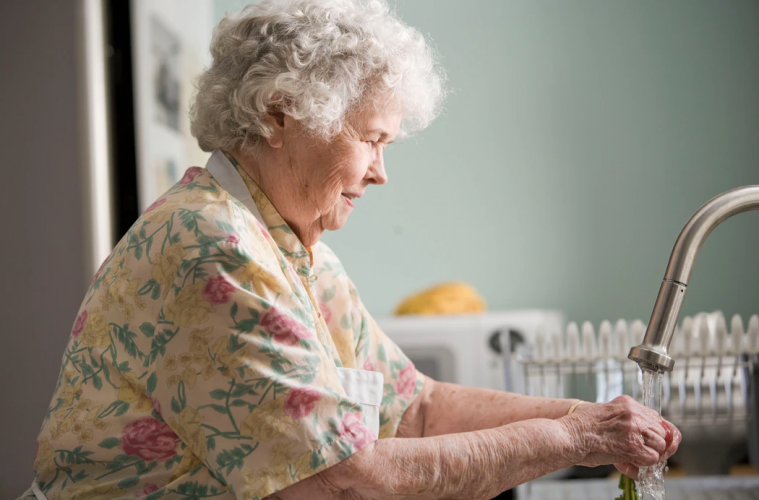It’s been almost a year since the coronavirus pandemic began and completely changed life as we know it. With the whole world going into lockdown and businesses shutting down everywhere, we have witnessed the emergence of an atmosphere of panic and anxiety about both the present and future. The pandemic has impacted each and every person around the world in a different way. However, for seniors, perhaps more than any other group, the pandemic has hit extremely hard both physically and mentally.
Here is just a glimpse of the enormous impact this disease has had on their lives.
Healthcare Concerns
Most seniors, whether they live in a care home, with family, or alone, suffer from preexisting health conditions that come with old age. Some of these conditions are non-communicable and some are communicable, and the list includes cognitive impairment, diabetes, chronic respiratory diseases, cancers, heart diseases, and kidney problems.
Now more than ever, seniors need regular medical attention to maintain their health and immune systems. However, with medical resources shifted towards the fight against COVID-19, there has been a significant reduction in access to healthcare for seniors. Not to mention that if they contract the virus, they are more prone to severe symptoms due to their weaker immune systems. Sure enough, the numbers bear that out, with the percentage of deaths in care homes skyrocketing all around the world.
Effects of Social Distancing
While social distancing is necessary to protect the health and wellbeing of our communities, it comes with its fair share of negative consequences. Social distancing for seniors means they’ve had to completely cut out most of their daily activities and interactions with other people. The experts over at https://www.upliftingmobility.com believe that this lack of human connection may, in fact, increase health risks for seniors. Studies have shown that feelings of loneliness trigger a stress response that leads to inflammation and weakens immunity. That’s why it’s important to promote social distancing among the elderly population while at the same time finding ways to ameliorate the harmful effects of isolation.
Mental Health Issues
The pandemic has had a significant impact on everyone’s mental health. Seniors, however, are among the most vulnerable cohorts of the population, and therefore, the impact has been even greater on them. This is probably due, in part, to the fact that they have less flexibility when it comes to adapting to new, demanding, and urgent situations. Some of the mental health issues that have spiked among seniors since the beginning of the pandemic are anxiety, panic, depression, chronic stress, and insomnia. They experience anxiety related to their health and the well-being of their loved ones along with feelings of helplessness and isolation. It’s even more challenging for elderly individuals with preexisting mental health issues and diseases like dementia and Alzheimer’s disease who are incapable of understanding the current reality.
The Digital Divide
If you think about how most people have coped with the ongoing pandemic, you’ll find that technology is playing a major role in keeping everyone sane. However, this hasn’t been the case for seniors who, when it comes to technology, do not generally have the same access or skills as other age groups. This trend is also known as the digital divide. Despite this technological gap not being a new concept, it has had an outsized impact during the pandemic, playing into the increasing feelings of isolation among the elderly population. On the other hand, the growth of this problem has helped draw attention to the divide, and members of the community and government are working hard to find actionable solutions.
How Should We Safeguard Seniors During Coronavirus?

So, what measures are necessary to keep seniors safe both physically and mentally during the pandemic? First of all, preventive health measures should be implemented that will decrease the chances of contracting the virus or weakening immunity in any way. To limit chances of infection, hospitalization should be reserved only for dire emergencies. In addition, adequate nutrition must be provided to seniors since they are most likely to suffer from acute malnutrition, further weakening their immune systems. Moreover, we must encourage more indoor physical activity. It is also important to implement digital literacy programs to help seniors use technology to stay connected to their loved ones and the world.
This is only a small overview of the significant impact COVID-19 has had on seniors. The pandemic, unfortunately, has also highlighted the existence of ageism and its horrible effects. It is our responsibility as a community to take care of our elders, especially now when they need our support. If you have an elder in your family or live near a care home, find ways to reach out and help while still maintaining their health and yours.


